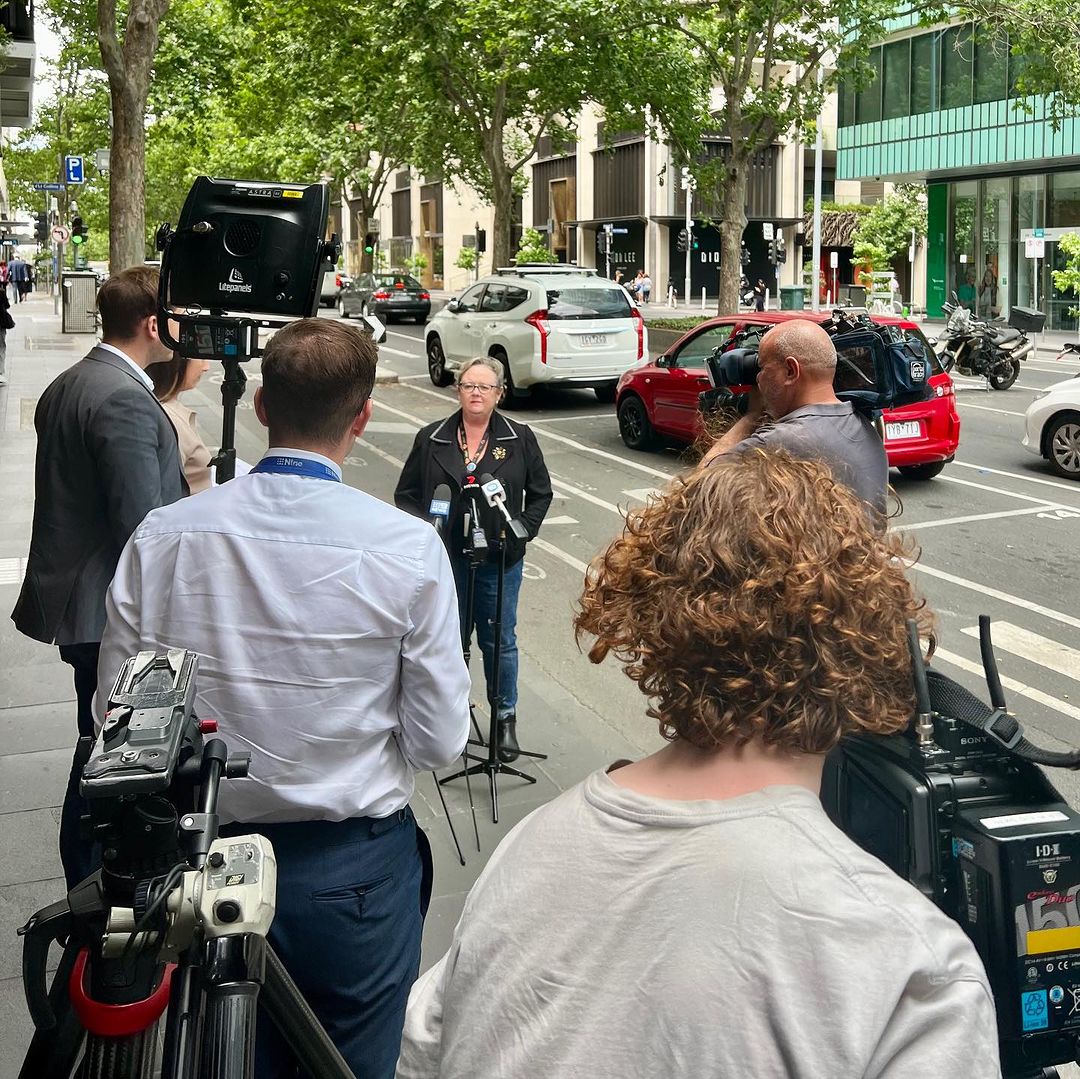
CPSU Victoria, led by secretary Karen Batt, made an initial bid in October for the union to receive a 20 per cent pay rise over four years, the right to flexible work, extra leave and a 17 per cent boost to superannuation. Photo: @cpsuvic.
The Community and Public Sector Union (CPSU) and the Victorian Government this week signed a four-year deal that will raise wages by 12.55 per cent and require employers to explain their rejection of flexible work requests.
Victorian public servants will receive a 3 per cent increase in their salary from 1 May of each year, on top of a five-day leave entitlement covering women’s reproductive health, such as IVF treatment, menstrual pain, menopause, or perimenopause.
Premier Jacinta Allan said it was the right thing to do.
“It’s a recognition that, at particular points in women’s lives, they need support to be able to fully participate in the workforce,” she said.
CPSU Victoria branch secretary Karen Batt said a range of other improvements had also been included, such as improved processes supporting flexible and hybrid work in the public service.
“All the agency-specific appendix negotiations will have to be concluded now within four weeks to finalise agreement drafting and receive final approval prior to a ballot of all Victorian Public Service (VPS) employees,” Ms Batt on Tuesday (9 April).
The branch originally sought for the agreement to have a four-day working week across different VPS worksites. It was granted by the state through a joint feasibility study and working group tasked with exploring alternative ways of work that could be implemented.
Another controversial inclusion is the increased requirement for employers to give genuine consideration to flexible work requests made by any employee, requiring bosses to provide reasons if they cannot be approved.
Swinburne University of Technology Associate Professor John Hopkins told The Age these changes represented a major shift in workplace relations and similar requests at the top of the agenda for workplace agreements to come.
“It definitely gives the employee more of a footing to request it and more of a chance of getting that request approved,” said the professor, who researches flexible and remote work.
“For the employer, they have to provide more evidence and respond more quickly.”
Professor Hopkins cited the United Kingdom’s similar rules allowing staff to make these requests twice a year, which forced employers to decide within two months of being asked.
“Productivity is the main factor … if they refuse the request, they have to prove why it makes business sense to refuse it,” he said.
“It’s almost like you should have it unless there’s a business reason for you not to have it; that’s the direction things are heading in.”
In December, Victorian budget forecasts said net debt would hit $177.8 billion by 2027 – higher than that of NSW, Queensland and Tasmania combined.
State employee expenses were predicted to be $34.8 billion in the 2023-24 financial year, rising to $38.65 billion by 2027.
However, independent economist Saul Eslake told The Age on Monday (8 April) that the 3 per cent pay increase was reasonable and a bigger issue was how many employees remained on Victoria’s payroll.
The other pay increases and entitlement enhancements in the heads of agreement are:
- Mobility allowance (MA) superable payments retained (1.25 per cent calculated at the top of grade), paid 1 July each year
- One-off $5600 lump-sum cost-of-living cash payment per full-time employee to be paid as soon as possible after the agreement is approved by the Fair Work Commission (after VPS vote) to employees, regardless of classification, who are employed on 28 June, 2024
- Additional one-off $1000 lump-sum payment to shift workers (pro-rata for part-time and eligible casual employees), effective 1 October, 2024
- Performance payments retained (2 per cent) and top-of-band payments increase to 1.5 per cent
- No absorption of pay increases into upcoming employer superannuation increases
- An agreed mechanism to compensate additional unpaid hours for Grade 5 and above (or equivalent) employees
- A guarantee superannuation payments will be made on Primary Caregiver Parental Leave up to 104 weeks (from 52 weeks), allowing for shift workers on Primary Caregiver or Additional Secondary Caregiver Parental Leave to continue receiving shift penalties they would have received had they not been on leave.








